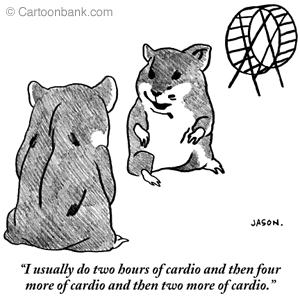Moments after I finished my the oral portion of comprehensive exams, Professor Michael Kreyling (a member of my committee) turned to me and said, “You’re going to want to relax. But you can’t.” He then listed many reasons for not relaxing: I needed to write a dissertation proposal, start working on the dissertation itself, send out articles to journals, and so on.
In the decade and a half since then, I’ve often thought of those words. The longer I’ve been in academia, the busier I’ve become. Indeed, had you told me in graduate school that, in a single semester (this one), I would be giving two different invited talks, delivering one conference paper, writing another (for MLA in January), writing an afterword (for The Complete Barnaby vol. 1), posting twice weekly to a blog, editing a book series, writing two book reviews, heading up the children’s literature track of our M.A. program, serving on various committees, teaching a couple of classes, and that this would be a laughably incomplete list of my activities,… I’d have thought: Yeah, right. No one can do that much in one semester. (I would also have thought: What? Me? Employed as a professor? You must be joking.)
Life was not always this busy.
Once upon a time, I was – to put this generously – not very industrious. As a young person, formal education held little interest for me; indeed, I was at best an indifferent student. I had interests, but they tended to fall outside of school curriculum: reading and writing stories, working out songs on my guitar, playing games on the computer. Then, at about the age of 18, I applied myself, improved my grades, went on to college, and have been working hard ever since.
But, for many years, I still retained (and, in some measure, still retain) the perception of myself as lazy – or, at least, as having tendencies towards sloth. Empirically, I realized that (as a brief look at my CV confirms) this notion is absurd. So, I’ve also had a competing perception of myself as at least somewhat accomplished in my field of endeavor. These perceptions have competed with one another for years. At present, the latter view is in the ascendant.
One motivation for taking on so much was to combat my secretly slothful nature. If I signed myself up for a lot of different projects (books, essays, invited talks, conference papers), I reasoned, then I’d have to rise to the challenge and get it done. As Jim Infantino sings,
I’m addicted to stress – that’s the way that I get things done.
If I’m not under pressure, then I sleep too long,
And hang around like a bum.
I think I’m going nowhere and that makes me nervous. (Jim’s Big Ego, noplace like Nowhere, 2000)
Though (contrary to the song) I don’t actually drink coffee, this “motivated by pressure” approach has proven quite a successful strategy –Â if a rather exhausting one.
These days, I’m not “addicted to stress.” Indeed, I would welcome fewer tasks. And yet… I have more to do than ever before. Rarely do I get 6 hours a sleep per night (I function best on at least 7, although that hardly ever happens anymore).
Having said that, to complain about this predicament (especially in these dire economic times) would seem churlish in the extreme. After all, I am an academic with a tenure-track job. Heck, I’m an academic with tenure. For any non-academics reading this, here’s a little context: 50% of students in doctoral programs drop out before earning the Ph.D. Of those who do get the doctorate, job prospects within academe are few and shrinking. Each year, the academy produces five times as many Ph.D.s in English as there are tenure-track jobs for Ph.D.s in English. When I got my degree (1997), the stats were slightly better – annually, four times as many Ph.D.s as there were jobs for Ph.D.s.
Beyond having “beat the odds,” I also have an interesting job. Let me say that again: I also have an interesting job.  Of the people fortunate enough to be employed, how many have jobs from which they derive meaning? I don’t have the stats on this question, but I suspect the answer is: very few. It’s a great privilege to have a job from which you gain more than a paycheck. True, such intrinsic motivation is especially important when your last pay raise came in 2007. (I’m told we’re getting one at the end of this year, though. Here’s hoping!) But my point is that being a professor is a really great job. I get to learn stuff, and then share what I’ve learned – in the classroom, at conferences, in my books and articles, and even on this blog. How awesome is that? (Answer: very!)
Still, I also have the suspicion that might enjoy life more if I did not work 60+ hour weeks. I often think of that New Yorker cartoon, where, with a hamster wheel in the background, one hamster says to the other: “I usually do two hours of cardio and then four more of cardio and then two more of cardio.”

So, despite all that I love about my job, I sometimes want to ask: Will I ever get off the treadmill? On the other hand, I do prefer my treadmill to the one in the cartoon.

melia erin fritch
Philip Nel
Pingback: more advice on tenure… « A Librarian’s Life